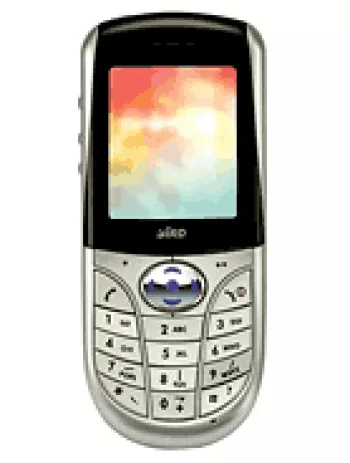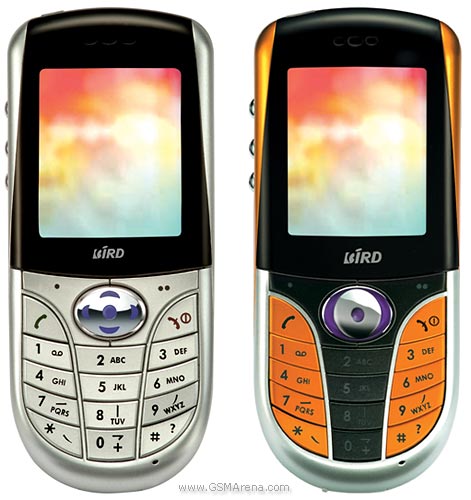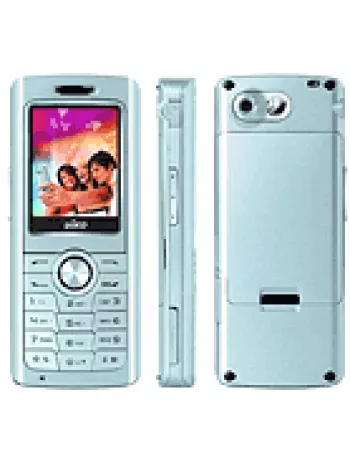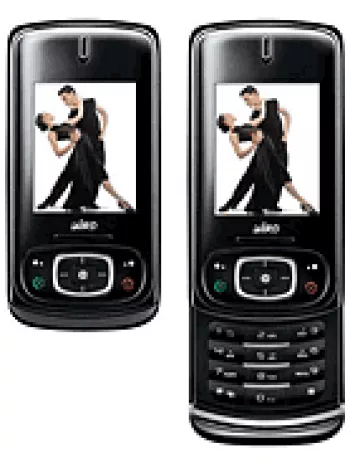
Overview of Bird S580
The Bird S580 is a feature phone that was announced in the first quarter of 2005. Positioned as a budget-friendly mobile device, it catered to users who prioritized basic communication features over advanced smartphone capabilities. Despite its simplicity, the Bird S580 held its charm with a compact design and practical features suitable for everyday use during its time.
Network and Connectivity
The Bird S580 operated on GSM technology and supported 2G bands GSM 900 / 1800 / 1900. It included GPRS Class 10 for data capabilities, though it did not offer EDGE connectivity. This network capability was typical of many mobile phones released at that time, focusing on voice calls and basic text messaging without advanced mobile data services.
Launch and Status
Announced in the first quarter of 2005, the Bird S580 was eventually discontinued. Its lifecycle reflected the rapid transition in the mobile industry from basic feature phones to more sophisticated smartphones, which started dominating the market in the years following its release.
Body and Design
In terms of design, the Bird S580 measured 107 x 44 x 20 mm and weighed 75 grams, featuring a compact and lightweight body that was easy to carry. It utilized a Mini-SIM, a standard sim size before the advent of micro and nano sims. With a focus on practicality, the device was available in two colors: Orange and Silver.
Display
The device was equipped with a STN display, capable of displaying 65K colors with a resolution of 128 x 160 pixels. While the size of the display isn't explicitly mentioned, it met the basic requirements for viewing contact information and reading messages during that era.
Memory and Storage
The Bird S580 did not support external storage, lacking a card slot for memory expansion. Internally, it allowed for storing up to 200 phonebook entries and maintained records of 20 dialed, 20 received, and 20 missed calls—all essential for a feature phone catering to basic communication needs.
Camera Capabilities
Featuring a CIF camera with 0.1MP resolution, the Bird S580's camera capabilities were minimal and focused on mere functionality. The device did not support video recording or a selfie camera, reflecting its primary orientation towards voice and text communication.
Sound and Alert Features
For sound, the Bird S580 did not include a loudspeaker or a 3.5mm headphone jack, relying purely on vibration alerts and downloadable polyphonic ringtones for notifications and calls. The focus was on providing a basic auditory alert system that was typical in non-multimedia devices of its time.
Communication and Browser
Communication on the Bird S580 was facilitated through SMS, EMS, and MMS, accommodating basic messaging needs without internet browsing capabilities. The WAP 1.2.1 browser allowed for minimal online interaction, tailored primarily for accessing simple WAP sites.
Battery Performance
The device was powered by a removable Li-Ion battery, with a standby time of up to 100 hours and talk time of up to 3 hours. This battery performance was adequate given the low power demands of the device's features compared to modern smartphones.
Miscellaneous Features
While the Bird S580 included basic games, it did not support Java applications. The absence of additional connectivity options like Bluetooth, WLAN, and positioning was reflective of its role as a simple communication device rather than a multipurpose gadget.
Conclusion
In summary, the Bird S580 was a straightforward feature phone that served the essential communication needs of its users during the mid-2000s. With a focus on practicality, basic design, and affordability, it appealed to a segment of the market that valued simplicity and reliability over the burgeoning trend towards smart technologies.
Main Features of Bird S580
- Lightweight design, weighing only 75 g (2.65 oz)
- Compact dimensions of 107 x 44 x 20 mm (4.21 x 1.73 x 0.79 in)
- Supports GSM technology with 2G bands (GSM 900 / 1800 / 1900)
- Color display with 65K STN colors
- Messaging options include SMS, EMS, and MMS
- WAP 1.2.1 browser for basic internet access
- Offers downloadable polyphonic ringtones for alert types
- Includes games for entertainment
- Removable Li-Ion battery with up to 100-hour standby and 3-hour talk time
- Available in two color options: Orange and Silver
- Supports a phonebook with 200 entries
- Maintains call records for 20 dialed, 20 received, and 20 missed calls
Bird S580 Disadvantages
- Uses outdated GSM technology.
- Does not support EDGE for faster data speeds.
- Discontinued model, no longer available.
- STN display with only 65K colors, limited brightness and quality.
- No expandable memory, lacks card slot.
- CIF main camera without video recording capabilities.
- No front-facing selfie camera.
- Absence of a loudspeaker and no 3.5mm jack for audio.
- Lacks modern communication features such as WLAN, Bluetooth, GPS, and FM Radio.
- No USB connectivity option.
- Limited battery life with up to 100 hours standby and up to 3 hours talk time.

View Also
More Phones
All Rights Reserved +14267 Phones © Mobilawy 2025
























